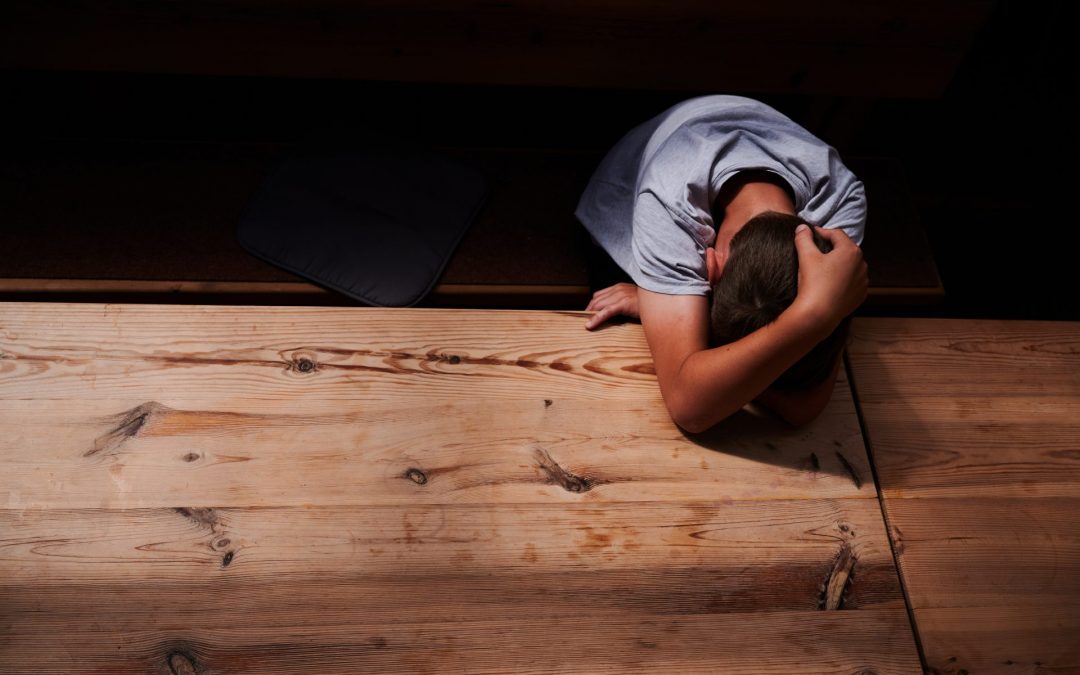 Have the article read by OpenAI (Beta). Please note that AI translations may take some time to process.
Have the article read by OpenAI (Beta). Please note that AI translations may take some time to process.According to a 2023 EU survey, 46 percent of the European Union’s population had experienced emotional or psychosocial problems – for example feeling depressed or anxious – over the course of the previous twelve months. Just a third (33 percent) of respondents agreed that people with mental health conditions receive the same level of care as those with a physical condition, the study found.
Ahead of last week’s World Mental Health Day which focussed specifically on mental health at work, EU Health Commissioner Stella Kyriakides, called to “break down the stigma around mental health, still too common across Europe and across all of society.”
She noted that “too often, people living with mental health challenges are met with misunderstanding, rejection and isolation” and said that “tackling this is the key to building healthier, more inclusive societies”.
“Mental health is important in every context, in particular at the workplace where people spend a significant amount of time,” said Kyriakides.
The European Commission announced on Thursday that it will launch a campaign – titled “In this together” – to raise awareness about the existing stigma and to address discrimination in and around mental health matters, in parallel with the objective of ensuring that all Europeans can access treatment regardless of their place of origin, age or socioeconomic status.
On World Mental Health Day, European Commission Vice-President Margaritis Schinas stressed that Brussels has launched twenty initiatives during the last legislature to fight what he called “a silent epidemic” and “help those who suffer”.
Last June, the European Commission announced that it will allocate 1.23 billion Euro to help member states improve the mental health of their citizens.
Mental health affects all
The WHO describes mental health as “a state of mental well-being that enables people to cope with the stresses of life, realise their abilities, learn well and work well, and contribute to their community”.
During the COVID-19 pandemic mental health has worsened, especially among vulnerable groups such as children and young people, the elderly and individuals affected by pre-existing mental health conditions.
Yet, mental health conditions already affected one in six people in the European Union before the pandemic.
The OECD estimated that “mental ill-health” costs the 27 EU countries and the United Kingdom at least 600 billion Euro, or more than four percent of the GDP – touching both on direct treatment costs as well as indirect costs related to lower employment rates and reduced productivity.
In the workplace 27 percent of EU citizens say they suffer from stress, depression or anxiety, according to the European Agency for Safety and Health at Work.
But also issues such as climate change have caused higher levels of anxiety and distress in children and young people specifically while Russia’s war in Ukraine, higher living costs, unemployment, increased digitalisations are affecting mental health negatively, too.
According to the European Commission, there is an unequal distribution of mental health problems between population groups, with depression being more prevalent among women and in population groups with lower income and education levels.
The Spanish Mental Health Commissioner of the Ministry of Health, Belén González, recalled that in Spain, the prescription of antidepressants has shot up by 250 percent since 2000; people with low incomes are prescribed with this type of medication seven times more than those with high incomes.
The prevalence of mental disorders is about to overtake that of cardiovascular diseases, according to the Italian Society of Psychiatry which also stated that depression and other mental pathologies will be the most widespread in the world already before 2030, the year in which the WHO had estimated the “overtaking”.
In the past, the WHO stated that “current predictions indicate that by 2030 depression will be the leading cause of disease burden globally”.
Overlooked for too long
Mental health has been “one of the most overlooked areas of public health, receiving a tiny part of the attention and resources it needs and deserves”, according to the WHO.
In France, where new Prime Minister Michael Barnier announced that he wanted to make mental health a “major national cause” by 2025 and promised a doubling of teenage information and support centres “within three years”, a report by the French High Commission for Planning finds deficits.
Last week, it was submitted to the government. The document focused on ‘prevention’, early detection of disorders and changes to the care pathway. The report stated that the public mental health service is “struggling to meet needs” and further noted the “overcrowding” of public reception facilities. The number of psychiatrists per 100,000 inhabitants in France “varies from one to 40” depending on the region, raising “questions of equality”, emphasised French Planning Commissioner François Bayrou.
In Romania, health spending per capita remains the lowest among EU countries and the number of specialists is significantly lower than the EU average, according to a report. For the country, the economic costs of mental health conditions were estimated at 2.1 percent of GDP (3.4 billion Euro) in 2015. The Romanian Economic and Social Council estimated the cost of untreated mental disorders at 11 billion US-Dollar (10.1 billion Euro) in 2022. Though having one of the lowest prevalence rates in the bloc, issues related to mental health may be more common than reported – reasons include stigma or under-diagnosis.
According to the OECD, mental health issues affected one in six people in Slovenia in 2019. The government responded by accelerating efforts to open mental health centres for adults and children and adolescents. The National Institute of Public Health noted that more than a third of employees in Slovenia are exposed to risks to their mental health at work.
In Italy, six percent of adults report having depressive symptoms, a decreasing share in the general population but increasing in young people aged between 18 and 34, but one in three does not seek help, Italian National Institute of Health data shows.
According to the Italian Society of Psychiatry, the pandemic dimensions reached by mental disorders are not matched by an increase or improvement in treatment services, particularly in Italy. The Departments of Mental Health have decreased in number, from 183 in 2015 to 139 in 2023, and next year another thousand psychiatrists will be missing.
Increasing numbers of young people reporting mental health problems are also observed in other countries.
41 percent of adolescents in Spain have had or believe they have had a mental health problem in the last year, although more than half have not asked for help and a third have not told anyone, according to data by UNICEF and Sevilla university who polled nearly 5,000 young people aged 13 to 18.
“There is a very significant change regarding mental health, more is known, more is said, but there is a lack of data and better knowledge; our adolescents are increasingly normalising talking about mental health or identifying possible problems, but a certain stigma still persists around the subject,” explained José María Vera, executive director of UNICEF Spain.

Between influencers, self-diagnosis and an heightened awareness for mental health
Recent studies have highlighted alarming links between excessive screen time and the consequent negative impact on the mental health and academic performance of children and young people. But some also see how spending time in front of a screen can help get access to information and help.
According to the joint UNICEF-University of Sevilla data, more than half of the youngsters consider the networks X, TikTok and Instagram to be quite or very dangerous for mental health, although they also recognise that they are their allies when it comes to searching for information.
In Austria, 75 percent of 15- to 25-year-olds follow influencers on social media, 30 percent indicate that they specifically follow health influencers, said communication researcher Kathrin Karsay of Vienna University, citing from a recent study.
The researcher identified an increasing attention for mental health but also found a certain ‘trivialisation and glorification’ of mental health problems.
It is “somehow trendy to have mental health problems and I see that as a problem,” she said. There is an increase in self-diagnoses and over-interpretations of mental health problems on social media.
“I emphasise that you should get more information and contact a specialist. You can’t diagnose yourself,” said Hungarian MEP, doctor and influencer András Kulja about his videos.
“You decide who you follow,” emphasised Conor Warren, founder of Spark UK, a young people-led mental health organisation in the UK. “Social media is here to stay,” said the 18-year-old.
He had suffered from mental health problems himself and had found it difficult to talk to a specialist directly because he was used to communicating with his friends via messaging services. Therefore, services without the usual communication channels should be promoted, such as text services to support mental health, Warren recommended.
This article is published twice a week. The content is based on news by agencies participating in the enr.
